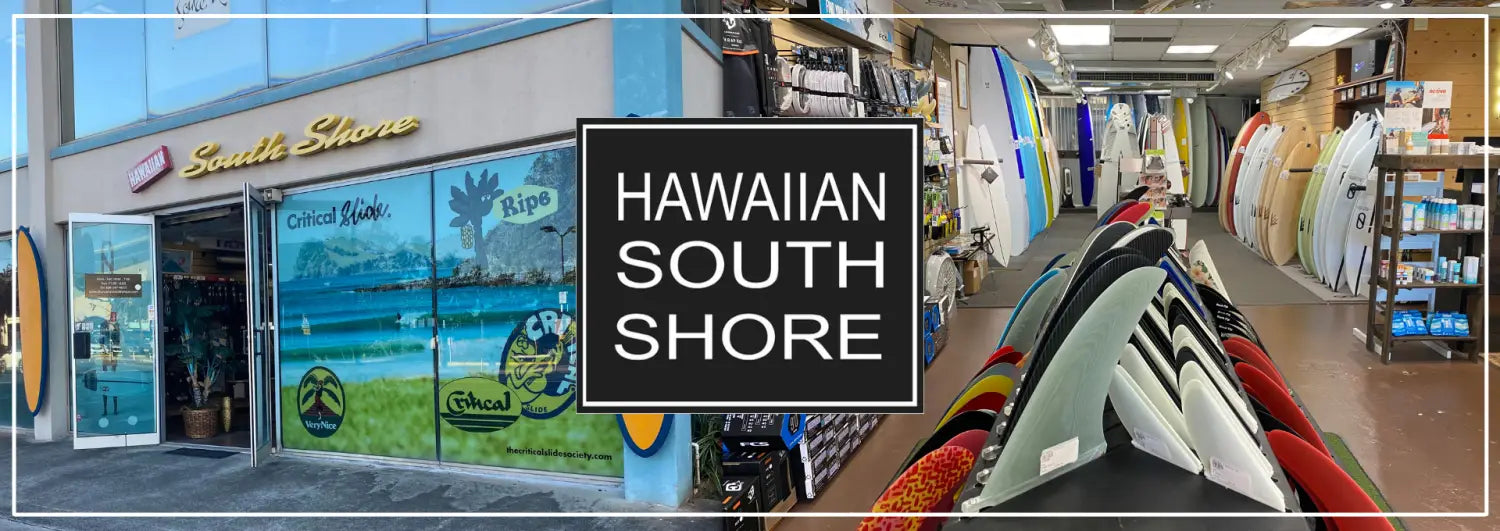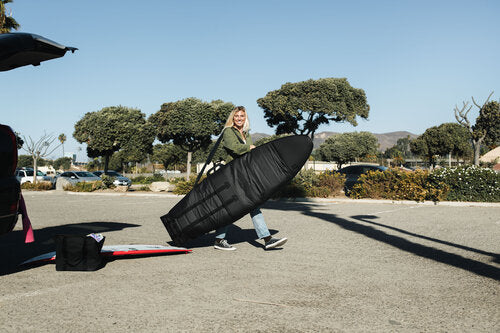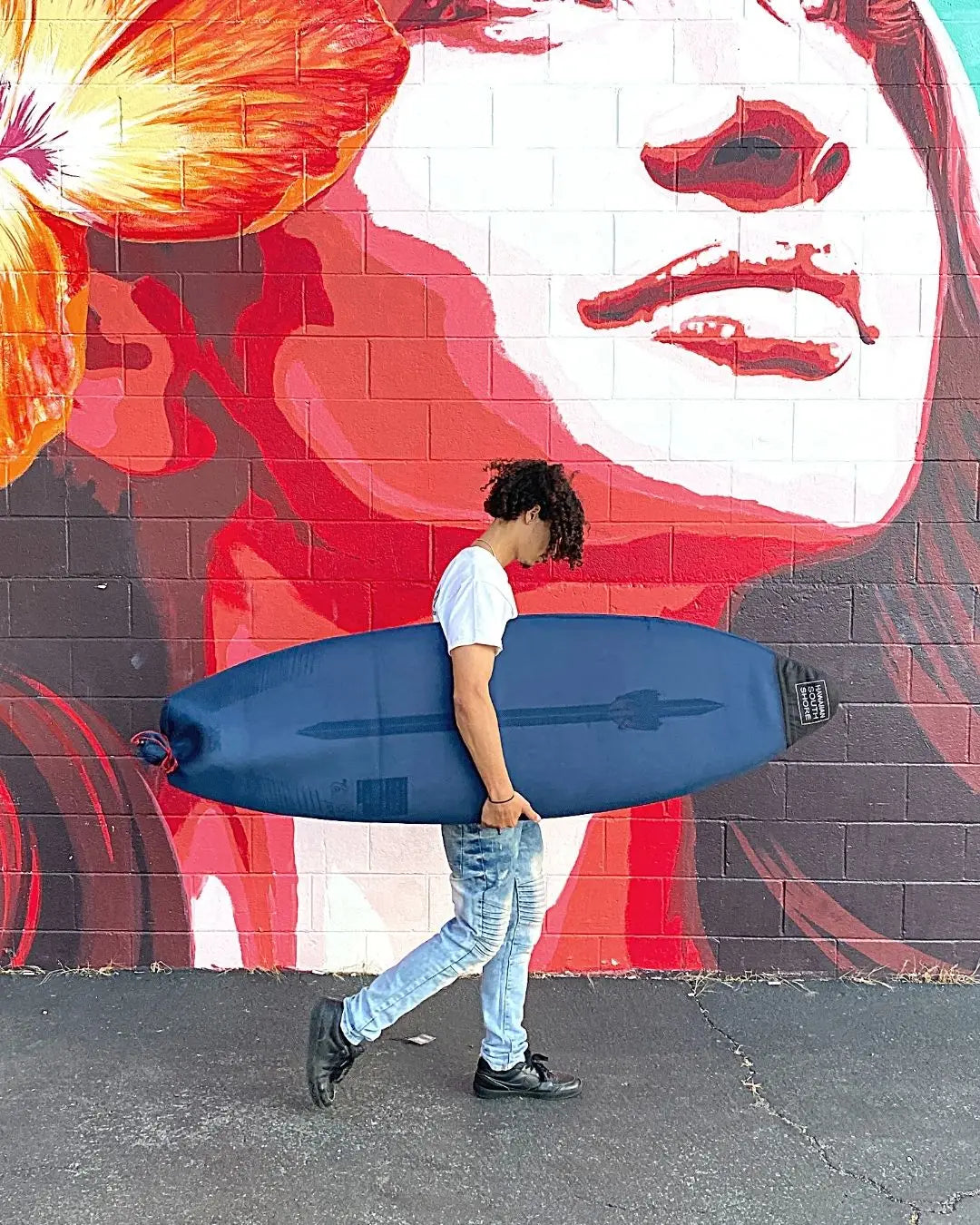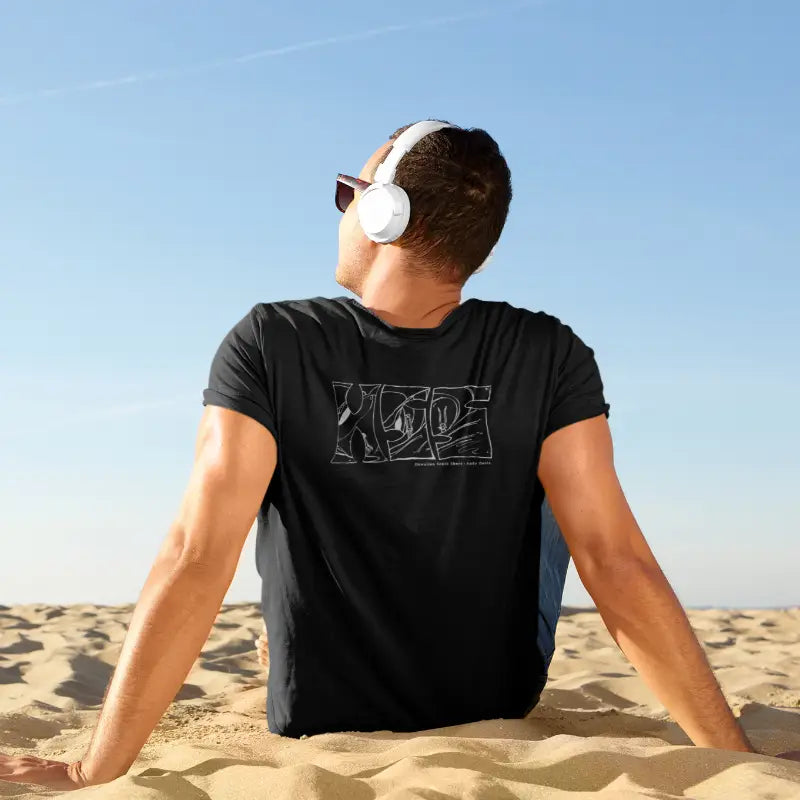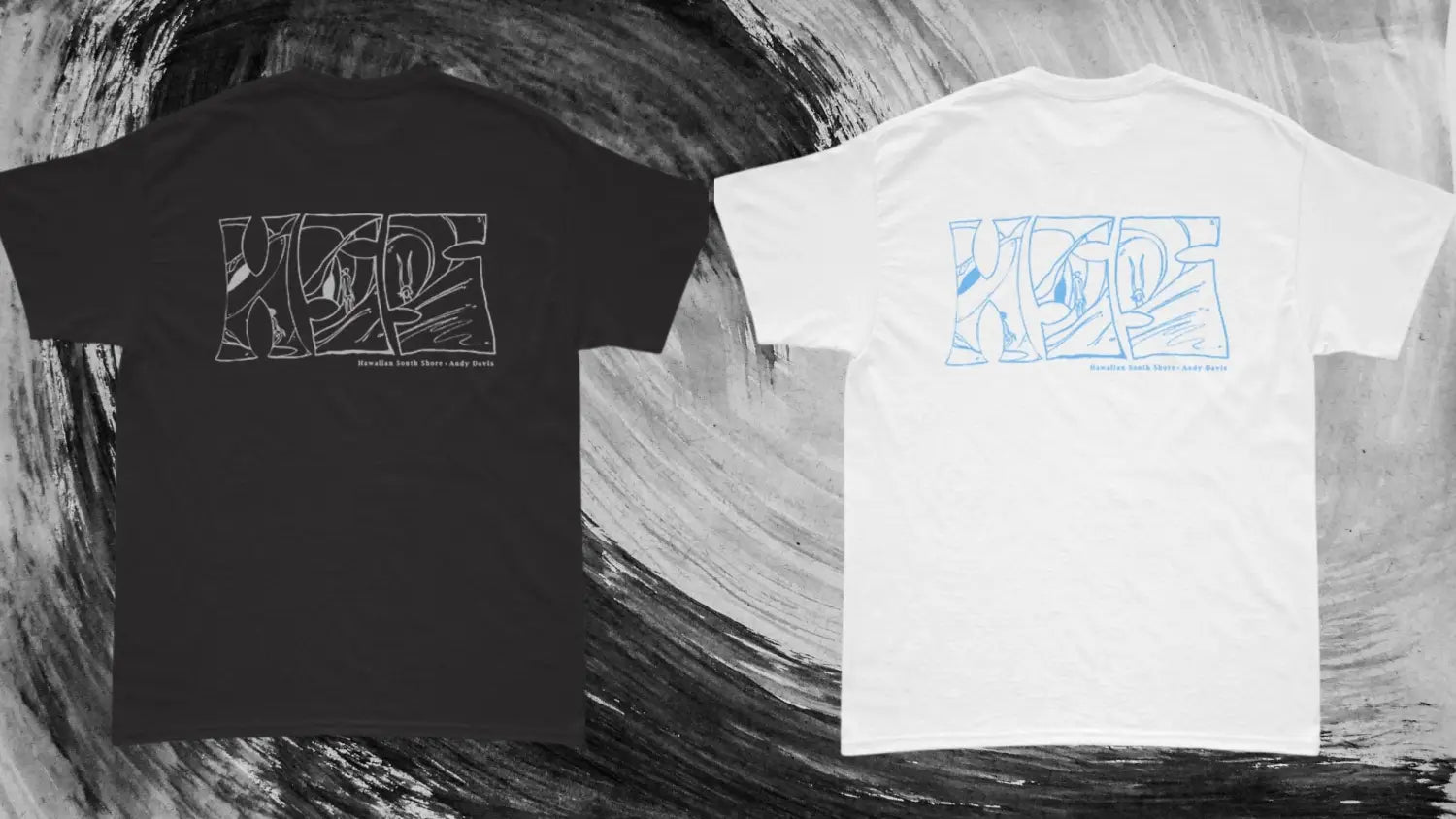Hawaiian South Shore February 2022 Newsletter Part 2 of 2
Caring for Your Boards on Day Trips and Bigger Adventures
For many of us who live close to the ocean, surfing is a daily activity. This means that our boards get transported a lot—from the garage to the car, from the car to the water, and back home again. All of that transportation can subject our surfboards to a number of risks, including weathering and exposure to the elements, bumps and dings, and who knows what else! This is why it is so important to transport your surfboard properly on the way to the beach, and to take care of it before, during, and after surf sessions.
While there are a lot of great travel bags for checking your surfboards onto flights, these tend to be pretty bulky and heavy, due to all of the foam and protection that they offer.
But if you are simply driving to the beach, you don’t need quite so much protection, which is why it is a good idea to have a smaller, lower-profile day bag for your board. You could use a nylon bag such as the Daylight bag (which features a heat-reflective outer skin and a convenient shoulder strap), or a knit bag or “board sock,” such as the Hawaiian South Shore knit bag.
Knit bags are stretchy and flexible, and take up a lot less space, making them quite convenient for short trips to the beach. Plus, they still offer a lot of protection due to their soft, springy material. The Hawaiian South Shore knit bag in particular is made from life jacket material, so it is durable when in contact with salt water. Plus, it has 1/4 inch of foam for padding and an internal coating that prevents wax from getting everywhere. Many travelers will actually use knit bags like these on each board in their larger travel bag, adding extra protection for those bumpy airplane rides.
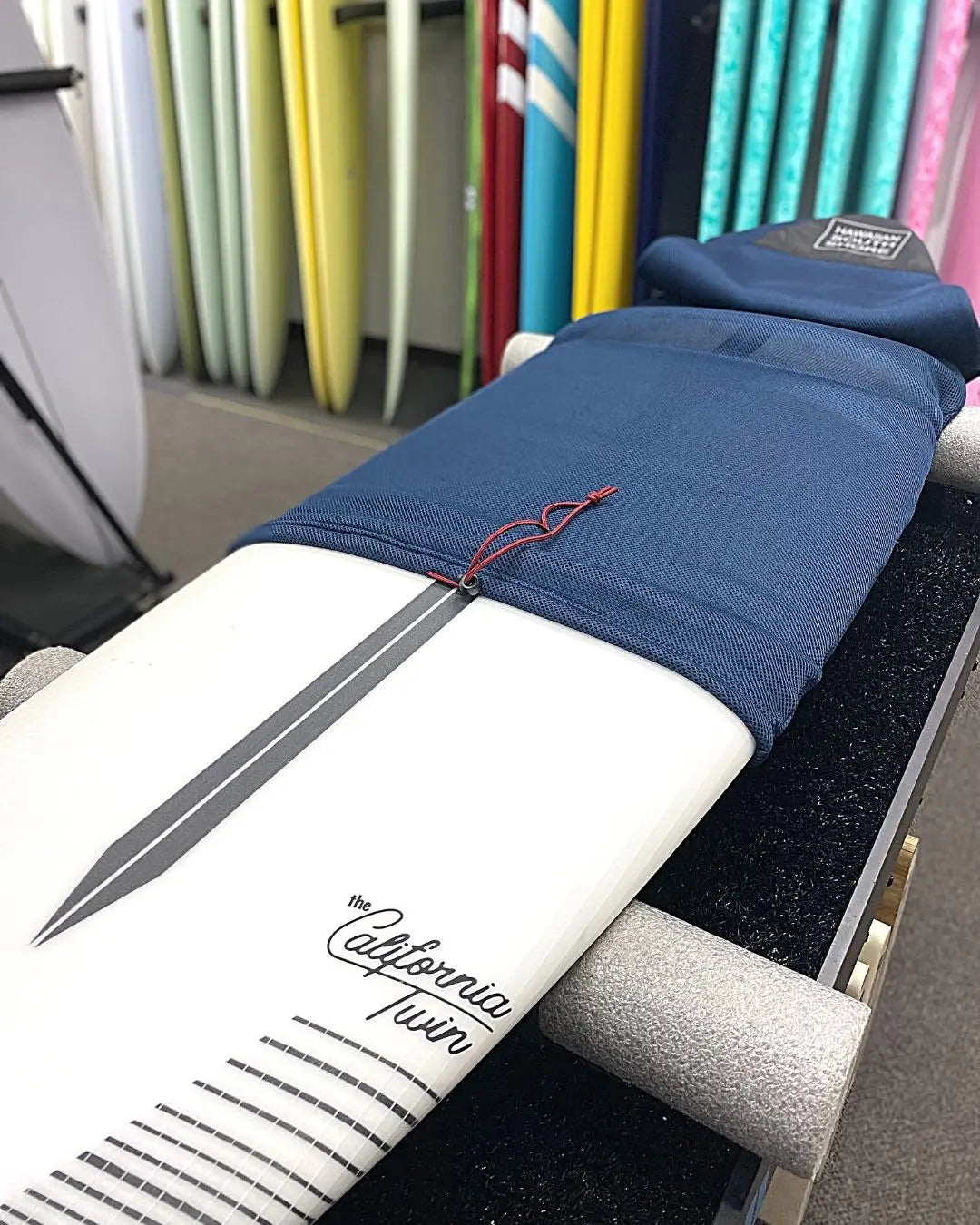
Once you get to the surf, you want to make sure that you take good care of your board. This includes keeping it out of the water whenever it gets dinged and making sure to have dings professionally repaired once they have dried out; not putting your board wax-down in the sand; always rinsing your board with fresh water after a session; and making sure not to leave your board out in the sun, where it can heat up and delam.
Many of us like to surf early in the morning before work, and often find that we have to leave our boards in our cars while we are in the office. If you can’t park in a covered area where your car is shaded and remains cool, then we highly suggest bringing your board into the office with you (if possible). If you can’t do that, try to park somewhere relatively safe where you can crack the windows to allow a little bit of breeze to circulate through the car. Heat is a surfboards worst enemy—not only does it melt the wax and make a huge mess in your car, but it can mess with the chemical bond between the foam and fiberglass, which shortens the life of your board and can cause bubbles in the glass on certain types of boards.
Finally, if you are heading out on a big surf trip, you want to make sure that you protect your boards adequately before checking them onto your flight. Get a sturdy travel bag or coffin that can accommodate the number of boards you plan to bring, and make sure there is enough room to fit all of the boards after they are individually wrapped in knit bags or daybags (for extra protection). Consider adding extra protection on the top and bottom boards, since they are the most likely to be damaged if the board is impacted. You can do this by layering your towels, wetsuits, and other clothing items on top of the top board and underneath of the bottom board—just make sure that you remove your wax first, or at least wrap the boards in board socks, otherwise you might arrive to your destination to find melted wax all over your clothes!
If your boards have removable fin systems, make sure all of your fins are removed before packing them in your travel bag. If you have glass-on fins, consider using foam blocks with slices in them to accommodate the fins, as these add stability and make it less likely to snap a fin while in transit. Also consider layering the rail sections of the bag (along the zipper and along the bottom of the bag opposite the zipper) with towels or clothes, as this area is also susceptible to damage. You can also use pool noodles with a slice lengthwise to help pad the rails of individual boards, or use bubble wrap to help pad the rails.
Finally, try not to overstuff your board bag and keep it relatively light. Overstuffed bags are stretched thin and don’t provide quite as much protection, and heavier bags are more likely to be dropped by baggage handlers. You might also consider sticking some “Fragile” stickers on your bag and being super nice to the gate agent who checks your boards in for you—anything to help that precious cargo make it to your destination intact!
Hawaiian South Shore Member of the Month - Michael McChrystal
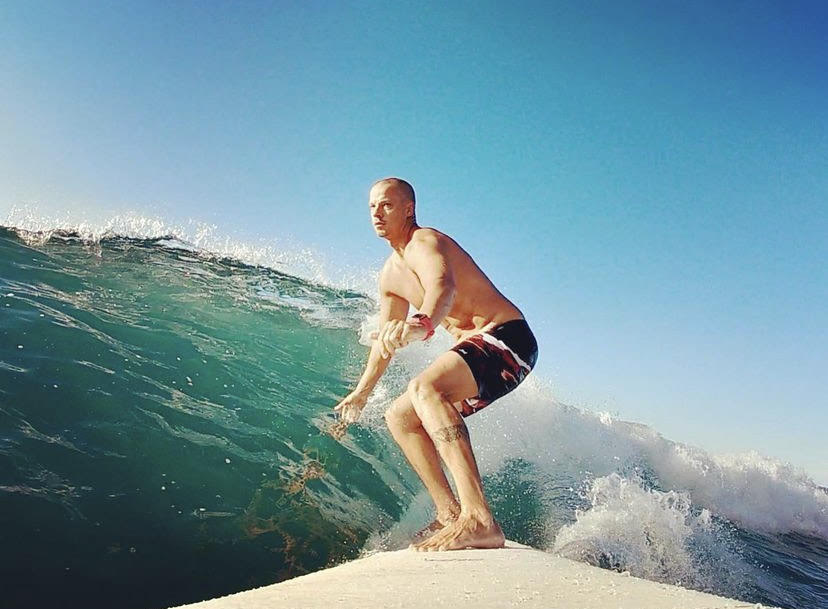
When and why did you initially get into surfing?
I didn’t start until college in Santa Barbara
Did you have a time period you laid off from surfing?
It wasn’t a full layoff but I lived in Tokyo for 4 years and only surf a handful of times. It was super difficult to get to the beach since I didn’t own a car while I was there.
What is your favorite thing about surfing?
Just being out in the water. Whether it’s 1 ft or 5, it’s always gonna be a good time.
Where is your favorite place to eat after surfing?
Home
What is your favorite item on the menu?
I make a smoothie with a big scoop of Protein.
What other hobbies do you have besides surfing?
Not really a hobby but any free time I have I spend with my two daughters.
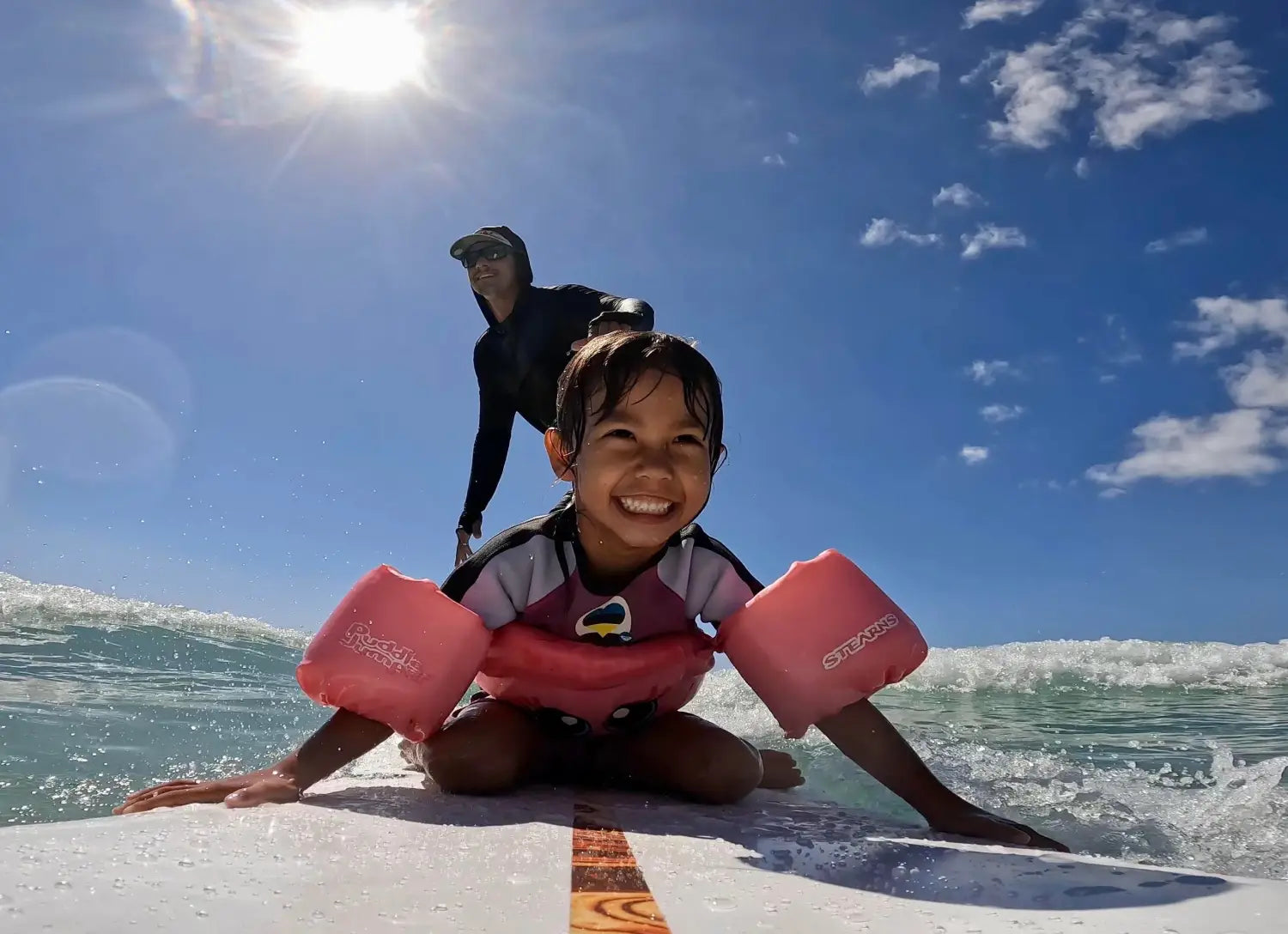
What type of work do you do?
I teach surfing lessons at Kewalos
Tell us about the board you recently purchased from us.
What model and size is it, and how do you like its performance?
Most recent was the 5’9” Hydra by Lost/Libtech. Super fun, catches plenty waves, super loose.
Do you have any additional comments?
I’ve built my quiver up on boards purchased at the shop. Best selection on Island.
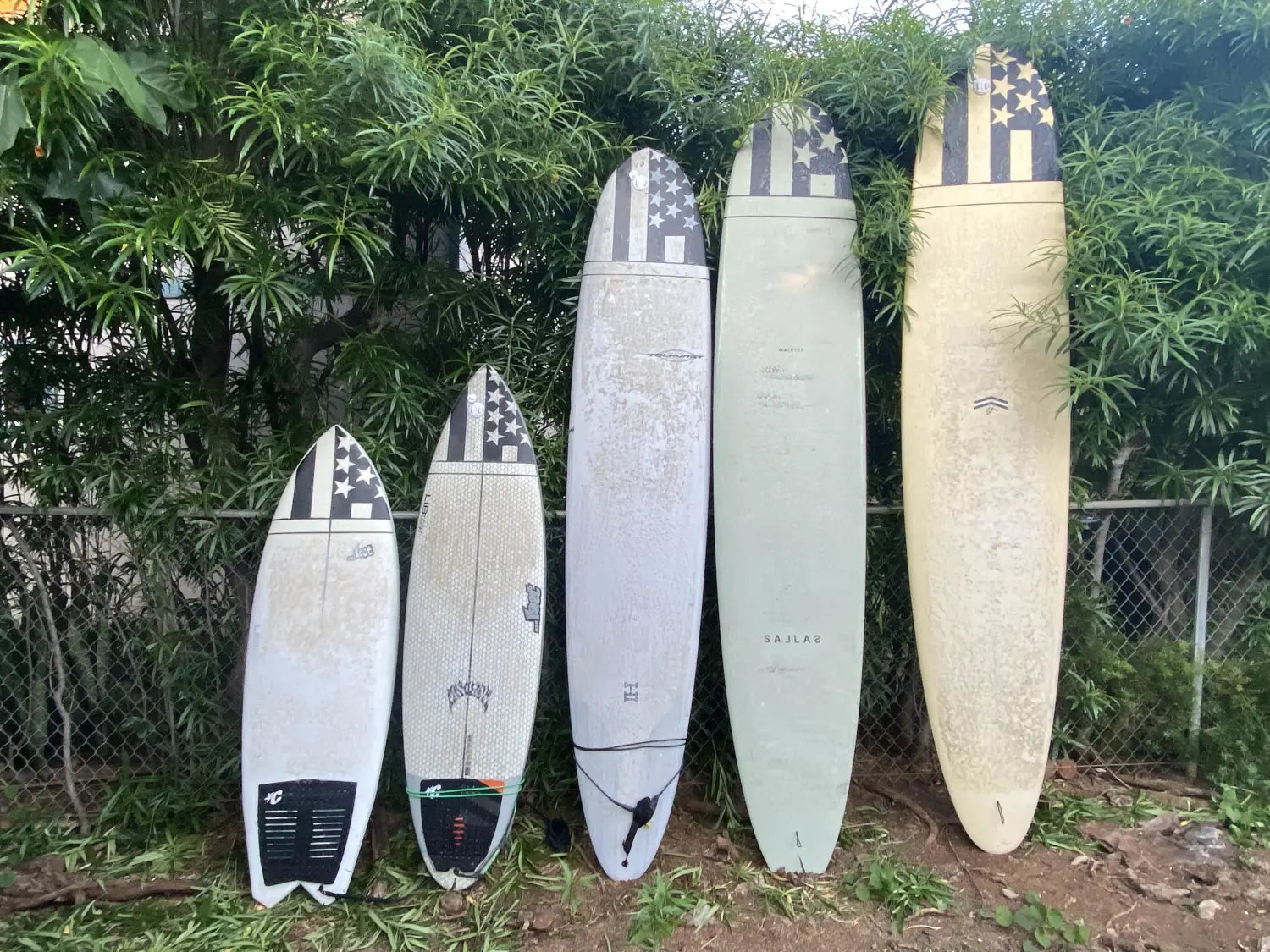
Surf Artist Andy Davis and His Hawaiian South Shore Collaboration
Surfing has long been a community of free thinkers and creatives, yet the number of surf artists whose work has stood the test of time can probably be counted on two hands. The simple reality is that it is difficult to make a living as an artist in our society, and the surf market is so small (relatively speaking) that it makes it virtually impossible to be financially successful when making surf-inspired art.
One person who has been able to turn surf art into a sustainable lifestyle is Andy Davis. Born in Southern California and currently living in Leucadia (north of San Diego), Davis has been making art for as long as he can remember. His minimalist style fit perfectly into the hipster-influenced Ride Anything movement of the early 2000s, and his long, unique lines and creative surf paintings have been a mainstay of our culture for decades. Davis’s work has been featured throughout the surf media, including in Thomas Campbell’s epoch-defining films. He has done collaborations with Billabong, Roxy, Vans, Captain Fin Co., the Surfrider Foundation…and even Hawaiian South Shore!
Two decades ago, when Andy Davis was at the beginning of his amazing career, we collaborated with him on a series of Hawaiian South Shore t-shirt designs. To celebrate the 20-year anniversary of that collection, we’ve recently reprinted one of our designs in two colors. Whether you are an Andy Davis fanatic or just a fan of surf art, these shirts are a great addition to the collection.
Thanks to Andy for being a part of the Hawaiian South Shore family and sharing his talents with us. We are still fans, all these years later!


